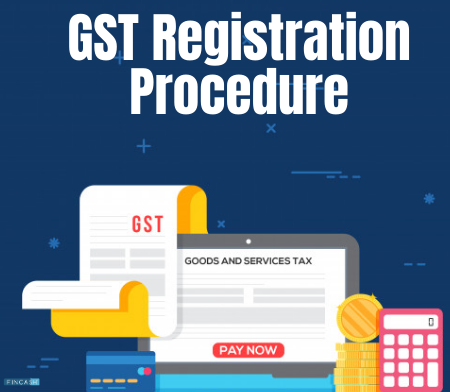Leading Rated Best GST Registration Services in Singapore for 2024
From Beginning To End: The Ultimate Roadmap to GST Enrollment for Businesses Seeking Financial Security
Navigating the intricacies of Goods and Services Tax (GST) enrollment is a critical step for services aiming for economic security. From understanding the basic principles of GST to adhering to post-registration standards, the process can seem daunting initially look. Nonetheless, damaging down the roadmap into manageable actions can enhance the enrollment journey for companies wanting to enhance their financial standing. Let's discover the essential components that comprise this supreme roadmap and discover exactly how each phase adds to laying a strong foundation for economic success.
Understanding GST Essentials
Exploring the fundamental concepts of Item and Services Tax (GST) is crucial for obtaining a detailed understanding of its ramifications on organizations and the economy. GST is a value-added tax obligation imposed on most products and services for residential consumption. It has replaced numerous indirect tax obligations that existed in the pre-GST period, simplifying the tax structure and boosting simplicity of doing service in India. Under the GST system, both items and services are tired at a details rate, which is determined based upon their category. Businesses are required to register for GST if their annual turnover surpasses the threshold restriction set by the federal government. Input Tax Credit Score (ITC) is a considerable feature of GST, allowing organizations to declare credit report for tax obligations paid on inputs, decreasing the overall tax problem. Understanding the essentials of GST is vital for organizations to adhere to tax obligation regulations, manage their funds successfully, and contribute to the nation's financial development by joining a clear tax obligation system.
Eligibility Criteria for Enrollment
To sign up for GST, organizations need to meet details qualification criteria developed by the government. The main qualification demand is that any kind of organization involved in the supply of products or solutions with a yearly accumulation turnover above the threshold restriction set by the authorities should sign up for GST. As of the current guidelines, the threshold limitation for GST enrollment is an annual aggregate turnover of 40 lakhs for organizations running within a state, except for special group states where the limitation is 20 lakhs. Furthermore, certain services are called for to register for GST regardless of their turn over, such as interstate vendors, informal taxed persons, and organizations reliant pay tax under the reverse fee system. It is vital for companies to completely analyze their turn over and transaction types to determine their GST enrollment responsibilities accurately. Failure to register for GST when eligible can bring about fines and lawful effects, making it essential for services to abide by the specified eligibility requirements.
Files Needed for Enrollment
Having met the eligibility criteria for GST enrollment, services should currently guarantee they have the requisite documents in position to continue with the registration procedure effectively. The papers needed for GST registration usually consist of evidence of business constitution, such as collaboration deed, enrollment certificate, or unification certification for different sorts of companies. Furthermore, businesses require to give files establishing the principal workplace, such as a rental contract or electricity bill. PAN card of business, along with the identity and address proof of promoters/partners/directors, are vital for confirmation functions. Checking account declarations, in addition to canceled cheques or a duplicate of the bank passbook, are needed to confirm the financial information supplied during registration. In addition, companies need to have electronic signatures ready for the licensed signatory. Making certain all these files are arranged and conveniently available discover here will certainly speed up the GST registration process, allowing organizations to adhere to tax regulations effortlessly.
Step-by-Step Registration Refine
Beginning the GST enrollment procedure includes a collection of structured steps to ensure a smooth and certified registration for companies. The very first action is to check out the GST site and complete the registration kind with accurate information of business entity. Following this, the applicant gets a Short-lived Referral Number (TRN) which is used to return to the application process if it's not finished in one go.
Next, all called for documents according to the checklist offered by the GST portal need to be published. These papers generally consist of proof of service enrollment, identification and address evidence of promoters, financial statements, and company entity's frying pan card.

Post-Registration Conformity Guidelines

Final Thought
To conclude, services looking for economic stability has to understand the fundamentals of GST, satisfy qualification criteria, collect required files, follow the step-by-step registration procedure, and abide by post-registration guidelines - Best GST registration Recommended Site services in Singapore. By adhering to these steps, businesses can make certain conformity with tax laws and maintain financial stability over time
In addition, specific organizations are called for to register for GST regardless of their turn over, such as interstate distributors, informal taxed persons, and services liable to pay tax obligation under the reverse cost system.Having satisfied the eligibility requirements for GST registration, companies have to currently guarantee they have the requisite files in area to continue with the registration process effectively. The records needed for GST enrollment usually consist basics of proof of service constitution, such as partnership action, registration certification, or unification certificate for different kinds of businesses. Furthermore, businesses need to offer papers developing the major place of organization, such as a rental arrangement or electrical power costs.Starting the GST registration procedure entails a collection of structured actions to make certain a compliant and seamless registration for organizations.